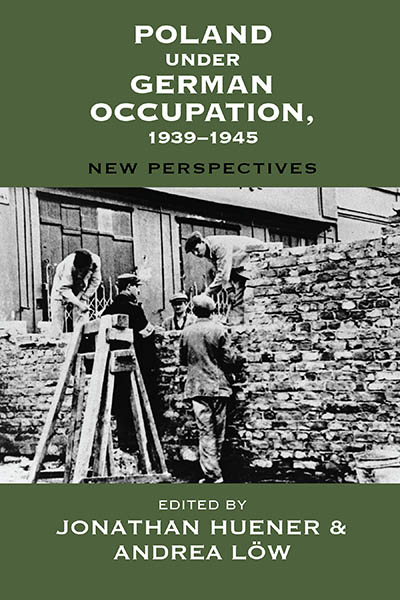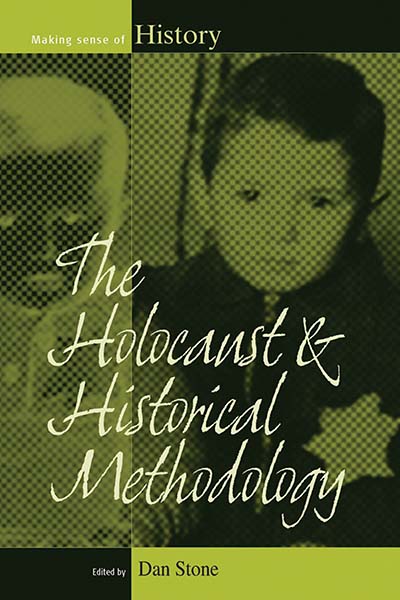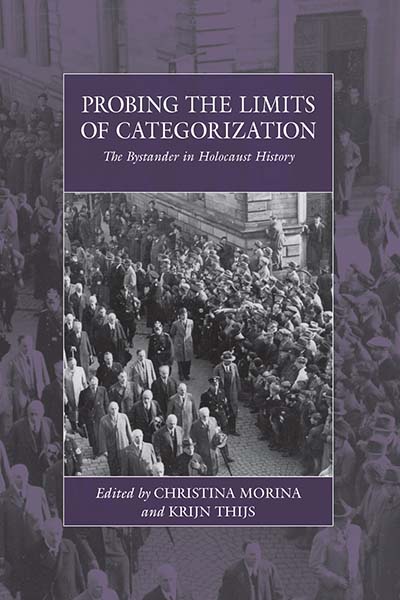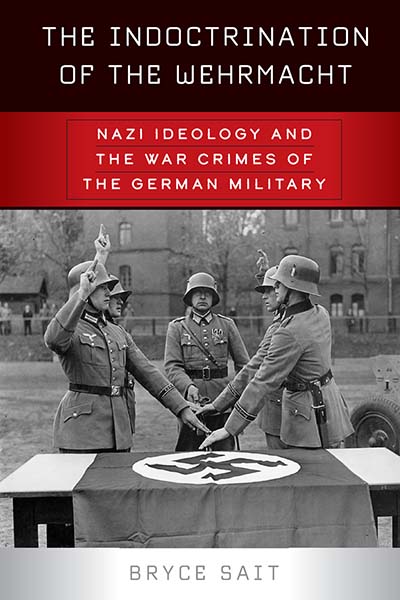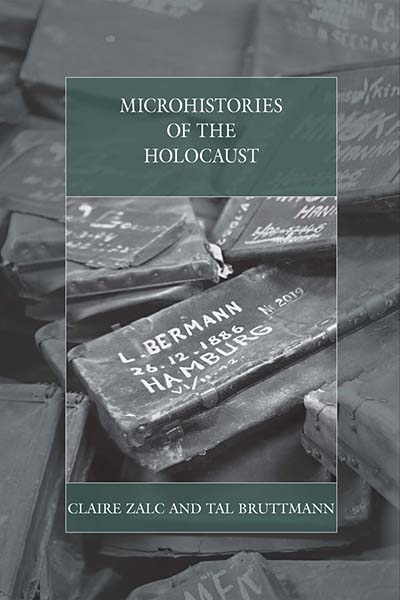
Series
Volume 24
War and Genocide
Email Newsletters
Sign up for our email newsletters to get customized updates on new Berghahn publications.
Microhistories of the Holocaust
Edited by Claire Zalc and Tal Bruttmann
336 pages, 4 illus., bibliog., index
ISBN 978-1-78533-366-8 $135.00/£104.00 / Hb / Published (December 2016)
ISBN 978-1-78920-054-6 $34.95/£27.95 / Pb / Published (November 2018)
eISBN 978-1-80758-614-0 eBook
Reviews
“This selection of mostly highly stimulating and well-researched case studies not only gives insight into the diversity of what we think of as the Holocaust, but also a sense of how differently we can go about studying this topic and past social life in general. There is much to be gained, therefore, from reading this collection not selectively, according to one’s own research interests, but as a whole. In this sense, this is a very effective publication and a great addition to the literature.” • H-Soz-Kult
“The contributions underline the extra value of microhistory, particularly for the study of relations and interactions between Jews and their non-Jewish fellow citizens. More generally, the volume demonstrates that the traditional tripartite division into victims, perpetrators, and bystanders is at least questionable. In most of the presented microstudies bystanders are absent, if not nonexistent. … The editors' main aim was to show through their collection of microstudies the complexity and diversity of the Holocaust. In this, they have succeeded admirably.” • H-Net Reviews
“This excellent volume not only displays an admirable thematic and geographic diversity, but also presents a range of interpretations of the methodology known as ‘microhistory.’ Together, the chapters provide a refreshing and important look at the genocide against the Jews, illuminating aspects and incidents that must, by definition, be overlooked by macrohistorical studies.” • Jonathan R. Zatlin, Boston University
“With historians in many countries turning increasingly to microhistory as an effective way to explore questions of human behavior and historical causation, now is the right time for this collection devoted to the Holocaust. The volume offers broad geographic and thematic coverage, provides examples of a variety of microhistorical approaches, and features the work of established scholars as well as younger colleagues engaged in innovative scholarship.” • Alan E. Steinweis, University of Vermont
Description
How does scale affect our understanding of the Holocaust? In the vastness of its implementation and the sheer amount of death and suffering it produced, the genocide of Europe’s Jews presents special challenges for historians, who have responded with work ranging in scope from the world-historical to the intimate. In particular, recent scholarship has demonstrated a willingness to study the Holocaust at scales as focused as a single neighborhood, family, or perpetrator. This volume brings together an international cast of scholars to reflect on the ongoing microhistorical turn in Holocaust studies, assessing its historiographical pitfalls as well as the distinctive opportunities it affords researchers.
Claire Zalc is a Research Professor (directrice de recherche) in history at the Institut d’histoire moderne et contemporaine, CNRS-ENS and at the EHESS. Among several publications, she recently edited "L'histoire de la Shoah face à ses sources", a special issue of Vingtième siècle. Revue d'histoire, 2018. She specializes in the history of immigration in twentieth-century France and the history of French Jews during World War II. She was awarded the CNRS Bronze Medal in 2013.
Tal Bruttmann is a researcher whose work focuses on the various anti-Jewish policies implemented in France between 1940 and 1944, as well as the “Final Solution.” He has published several books, the most recent of which was Auschwitz (La Découverte, 2015). He is currently working on a project about the “Auschwitz album” photos.

